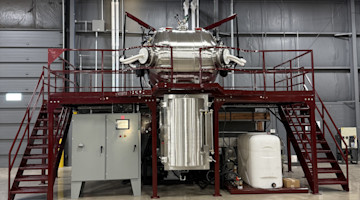Several bipartisan bills designed to strengthen the U.S. manufacturing industry and its global competitiveness have recently been introduced in Congress and are gaining traction on Capitol Hill. The bills closely align with AMT’s Manufacturing Mandate – the call for a national plan of collaboration between government, industry, and academia to revitalize the manufacturing sector and promote economic growth.
“The supply chain disruptions caused by the pandemic have clearly shown the vulnerability of U.S. supply chains and our overreliance on critical goods that are manufactured outside of the United States,” said Amber Thomas, vice president of advocacy at AMT. “This has threatened our economic security and by extension our national security. AMT is working with the sponsors of several of these bills as they move through the legislative process to make sure they fully address the current and future needs of the manufacturing industry.”
Together, these bills would:
Prioritize federal focus on U.S. manufacturing Many countries, including China, Japan, South Korea, Taiwan, Germany, and India, have prioritized their manufacturing industries through strategic national policies, investing heavily in state-funded initiatives that support innovation, employment, R&D, and education. Over the years, the U.S. government has supported and invested in some technologies – advanced composites, microelectronics, radar, global positioning systems, and the internet. Supply chain disruptions in the past year have made it clear that the manufacturing industry should also be prioritized, as it is a critical component of U.S. economic leadership and national security.
Improve coordination among federal agencies According to the U.S. Government Accountability Office (GAO), there are 58 manufacturing-related programs across 11 federal departments and agencies, including the National Science Foundation, the Department of Defense (DOD), DOD’s Defense Advanced Research Projects Agency, and others. Yet, these programs are rarely coordinated or integrated. This ad hoc approach is not as cost effective or strategic as it could be in advancing the industry. The recent bills include proposals to better coordinate and unify federal planning and resources in support of manufacturing.
Better support for small- and medium-sized manufacturers The bills also address the unique challenges of small- and medium-sized manufacturers (SMMs) by making it easier for them to learn about and utilize federal resources and programs. Approximately 95% of manufacturers are SMMs, and it is crucial that federal resources keep them connected to sources of new technologies, R&D, and technical infrastructure.
Invest in skills and education The legislation also addresses the challenge of building a skilled manufacturing workforce. The bills include proposals to provide the resources and coordination to make the U.S. education and training system more responsive to skills required by the manufacturing sector, including national investments that prioritize STEM education and applied research at all levels of education and training.
With all the focus on manufacturing, this is a good time to weigh in with your members of Congress on issues important to your company. As manufacturers and voters, your unique stories will make an impression and will inform their decisions when it comes to pro-manufacturing bills like those mentioned in this article.
Recent legislation
Senator Gary Peters, R-Mich., (re)introduced The National Institute of Manufacturing Act to establish a National Institute of Manufacturing within the Department of Commerce to strengthen federal focus on manufacturing and increase the global competitiveness of U.S. manufacturers. It would create a single manufacturing institute to house and coordinate federal manufacturing programs.
The National Manufacturing Advisory Council for the 21st Century Act was introduced by both Sens. Peters and Marco Rubio, R-Fla., to revive and elevate the National Manufacturing Advisory Council. The Council currently advises the federal government on manufacturing programs and provides guidance from the private sector; the bill would more formally establish it as a critical component in federal manufacturing policy and strategy. This bill is now part of The United States Innovation and Competition Act which passed the Senate by a 68-32 vote on June 8, 2021.
The Manufacturing.gov Act, introduced by Peters with Sens. Todd Young, R-Ind., and Rubio, codifies into law a manufacturing.gov hub, which would serve as a one-stop hub to connect manufacturers with federal manufacturing programs and resources.
The Office of Manufacturing and Industrial Innovation Policy Act, introduced by Sens. Klobuchar D-Minn., Wicker, R-Miss., Coons, D-Del., Portman, R-Ohio, Rubio, and Reps. Kaptur, D-Ohio and Fitzpatrick R-Pa., would create a new Office of Manufacturing and Industrial Innovation Policy (OMII) overseen by a chief manufacturing officer in the Executive Office of the President. The new office will work to coordinate existing federal programs and resources for manufacturers. The bipartisan legislation also includes a plan to improve workforce development and job creation and enhance R&D in manufacturing. This bill is now part of The United States Innovation and Competition Act which passed the Senate by a 68-32 vote on June 8, 2021.
In AMT’s endorsement of The Office of Manufacturing and Industrial Innovation Policy Act, AMT President Doug Woods said, “By establishing a central office at the White House, this legislation creates a direct line to the president on issues critical to manufacturing growth and innovation. It ensures attention at the highest level of government to rebuilding domestic supply chains, investing in R&D, leveling the playing field, and educating and training a diverse, skilled workforce. Thank you for your leadership on behalf of America’s manufacturers. AMT looks forward to working with you on this vital effort.”
If you need help in reaching out, contact Amber Thomas at AThomas@AMTonline.org.




